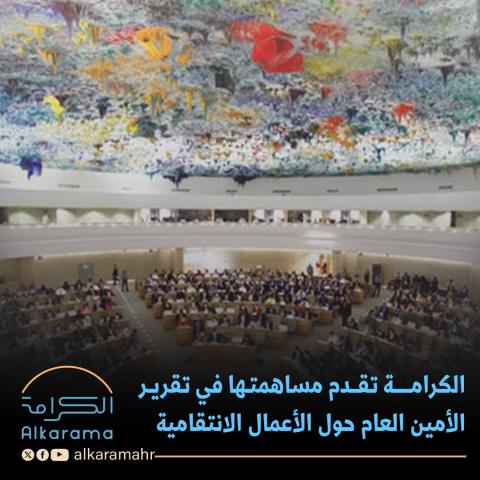
On 15 April 2025, Alkarama formally submitted its contribution to the forthcoming report of the United Nations (UN) Secretary-General concerning acts of reprisals against individuals and entities cooperating with UN human rights mechanisms. This report, mandated by Human Rights Council Resolution 12/2, seeks to document measures of intimidation or retaliation directed at those who engage with the UN to uphold international human rights standards.
In line with its longstanding commitment to the defence of fundamental freedoms, Alkarama this year highlights two emblematic cases that underscore both the scope and severity of reprisals: that of Mohamed Attaoui, a Moroccan environmental activist, and Safar Al Hawali, a Saudi intellectual who has been held in prolonged arbitrary detention. These cases collectively illustrate the manifold risks faced by those who dare to assert their rights on the international stage.
Morocco – Mohamed Attaoui
Mohamed Attaoui has been actively engaged in the preservation of the cedar forests of the Moroccan Atlas and has been subjected to a pattern of reprisals following his public denunciation of the illegal exploitation of these natural resources. As founder of a local civil society association, Mr Attaoui has endured arbitrary arrests, physical violence, malicious prosecutions, and professionally punitive measures, including suspension from his post.
Subsequent to his engagement with Alkarama—which, in August 2023, referred his case to the Special Rapporteur on human rights and the environment—the reprisals escalated significantly. These included repeated summons for interrogation, a custodial sentence of eight months, the suspension of his salary, and the seizure of personal property. The intensification of such retaliatory actions appears to be a calculated effort to suppress dissent and was duly brought to the attention of the Secretary-General within the framework of this year’s submission.
Saudi Arabia – Safar Al Hawali
Detained since 2018 on account of his critical writings, Safar Al Hawali was the subject of an individual communication brought before the Committee on the Rights of Persons with Disabilities by Alkarama. The Committee found that his fundamental rights had indeed been violated. Rather than implementing the Committee’s findings, however, the Saudi authorities embarked on a course of retaliatory conduct: denying Mr Al Hawali’s recognised disability status, introducing terrorism-related charges post hoc, and targeting members of his immediate circle for their engagement with UN mechanisms.
Four of his sons, his brother, and a close associate were all arrested and subsequently received severe prison sentences—of up to seventeen years—in proceedings characterised by the absence of due process and fair trial guarantees. The Saudi government’s official response to the Committee, submitted in November 2024, constitutes in and of itself an act of reprisal. It not only repudiates the factual findings but also seeks to delegitimise Mr Al Hawali and, by extension, the very credibility of the UN human rights system.
A worrying transnational trend: Fear beyond borders
Alkarama is deeply concerned about the alarming increase in reprisals against the families of Arab nationals living in exile, particularly in Europe and North America. These transnational acts of coercion are increasingly deterring such families from engaging with civil society organisations due to credible threats of intimidation and retaliation against their relatives who remain in their countries of origin.
This repressive cross-border pattern seriously undermines the integrity and effectiveness of the United Nations human rights system, which fundamentally depends on the free, voluntary and safe participation of victims and their representatives.
Accordingly, Alkarama urges the international community to adopt robust and legally binding protection mechanisms to safeguard the families of victims in exile, who often serve as key interlocutors for civil society actors and international human rights mechanisms.
